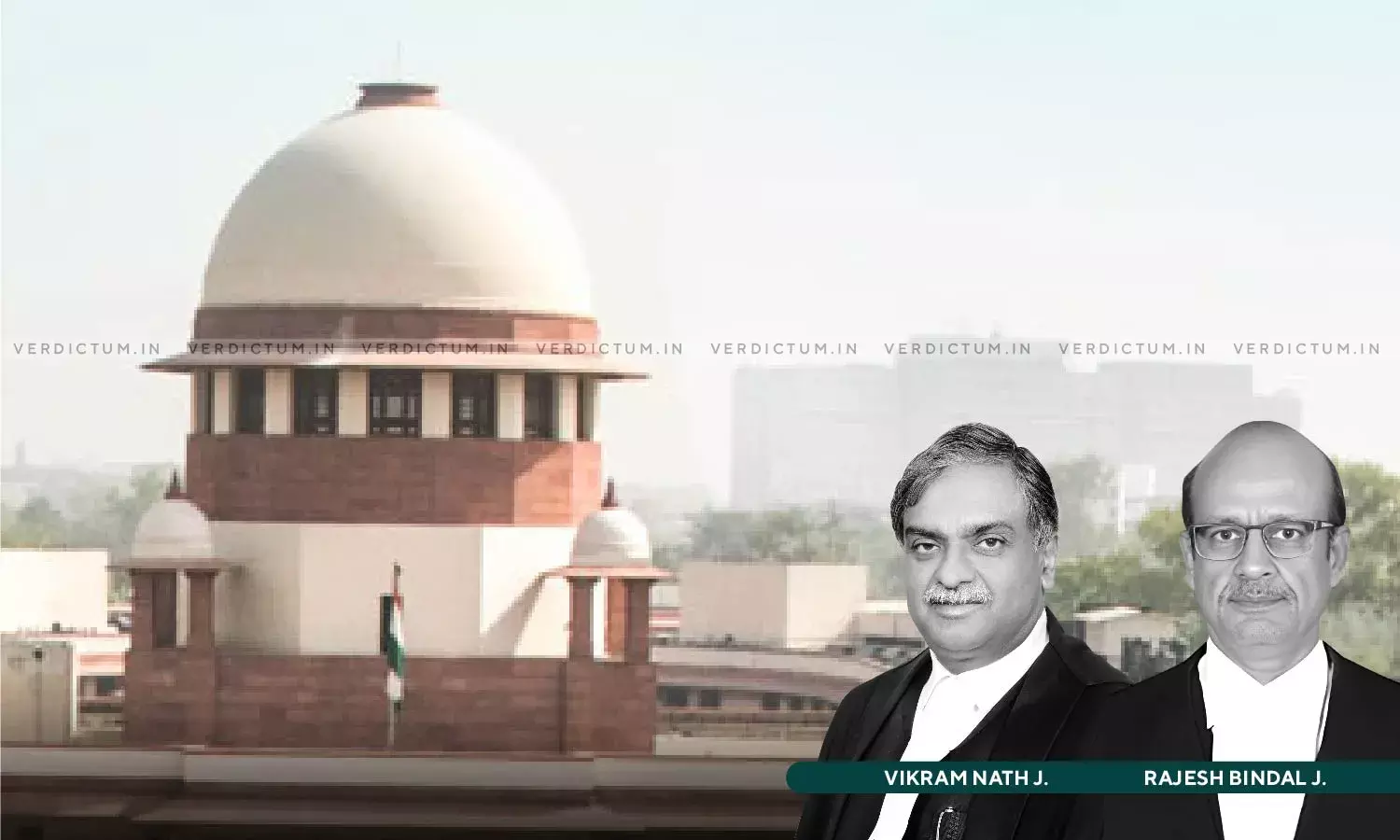First Appellate Court Should Deal With All Issues Of Law & Facts And Entire Evidence: Supreme Court

The Supreme Court held that a First Appellate Court is required to record its findings dealing with all the issues of law as well as fact and with the evidence, oral as well as documentary, led by the parties.
The court was considering an appeal filed challenging the High Court's judgment that had reversed a Trial Court's judgment.
"The First Appellate Court is required to record its findings dealing with all the issues of law as well as fact and with the evidence, oral as well as documentary, led by the parties. The judgment of the First Appellate Court must show conscious application of mind. The findings should be supported by reasons on all the issues and contentions", the Bench comprising Justice Vikram Nath and Justice Rajesh Bindal observed.
Advocate Yatinder Singh appeared for the Appellants and Advocate Mrigank Prabhakar appeared for the Respondents.
Kallu Bhai purchased a property from Amanat Ali in the name of his nephew, Mohd. Jafar, through a registered sale deed. After Kallu Bhai's demise, his second wife, Bashirun Nisha, also passed away, leaving behind Syed Mohd. Hasan, who lived with Kallu Bhai after his mother's death. In 1975, Mohd. Jafar agreed to sell the property to Raza Hussain, and the sale was registered in Raza Hussain's name in November 1975. In 1977, Raza Hussain filed a lawsuit against Syed Mohd. Hasan, seeking possession of the property and claiming damages.
The Trial Court ruled in favor of Raza Hussain (Appellants) in 1995, but the High Court overturned this decision in the first appeal filed by Syed Mohd. Hasan. The dispute revolved around property possession and ownership, with the Appellants relying on the registered sale deed, while the Respondent contended for adverse possession. Aggrieved, the Appellants approached the Apex Court challenging the order of the High Court.
The Court noted that the Appellant’s primary argument was that the High Court did not discuss the evidence on record and cast doubt on the validity of the sale deed without providing reasons. The trial court's findings regarding the sale deed's validity, supported by a handwriting expert's opinion and witness statements, were allegedly ignored.
“The High Court has seen the sale deed with suspicion only because it was noticed that there was some difference in the signatures of the vendor on the agreement to sell and the sale deed, however, failed to take notice of the evidence of the witness to the sale deed who was present in the hospital where the Registrar had gone to register the document”, the Bench noted.
The Court noted that the handwriting expert concluded that different individuals wrote various signatures on the documents, and witnesses testified to the sale deed's legitimacy. The Court criticised the High Court's suspicion regarding the sale deed's signatures for overlooking evidence of witnesses present during the registration.
“We have briefly noticed the material which has not been considered by the High Court while appreciating the evidence produced on record by the parties, especially in the first appeal where it is the duty of the court to address all the issues and decide the case by giving reasons”, the Bench noted.
Additionally, the Court highlighted the initiation of eviction measures after the property purchase and noted that the High Court failed to consider relevant material. The Bench emphasized the duty of the First Appellate Court to thoroughly address all issues, provide reasons for findings, and conscientiously apply its mind, which, according to them, was not fulfilled in this case.
Accordingly, the Court allowed the Appeal, set aside the impugned order, and remitted the matter back to the High Court for fresh consideration.
Cause Title: Sabir Hussain (Dead) Thr. Lrs. And Ors. v Syed Mohammad Hassan (Dead) Thr. Lrs. And Anr. (2023 INSC 980)

